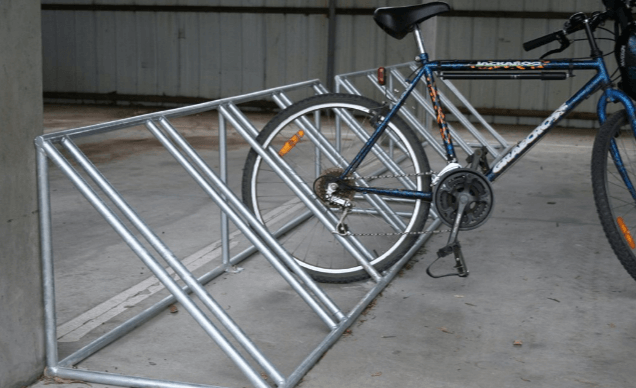The rise of electric vehicles (EVs) has been accompanied by rapid advances in charging technology, making it easier for EV drivers to quickly get back on the road with a full battery. Among the most talked-about charging standards today is CCS2 (Combined Charging System Type 2), widely regarded as the go-to charging solution for Europe and increasingly across the globe.
This article dives deep into the technical aspects of CCS2 fast charging, examines its power delivery capabilities, compares charging networks, and explores its adoption impact on EV infrastructure. If you’re curious about how CCS2 chargers stack up in terms of cost and compatibility, you’re in the right place.
What is CCS2 Fast Charging?
CCS2, or Combined Charging System Type 2, is an advanced charging standard designed for high-power DC fast charging and slow AC charging, offering EV owners a versatile and efficient charging solution. Its standout feature is the addition of two DC pins to the standard Type 2 connector, enabling EVs to switch between AC and DC charging seamlessly.
With CCS2, the power delivery range can go up to 350 kW, though real-world performance often depends on the specific charging station, EV model, and battery technology. This versatility has made CCS2 the dominant charging standard in Europe and a key player in global EV charging infrastructure.
See also: Automotive Repair Services for Comprehensive Vehicle Maintenance
Key Benefits of CCS2 Fast Charging:
- Universality: Compatible with most modern EVs in Europe.
- Speed: DC charging delivers high-speed energy transfer.
- Flexibility: Supports both AC and DC connections using one combined port.
- Scalability: Future-proof with a power ceiling far above current EV charging needs.
Real-World Charging Speeds with CCS2
While CCS2 chargers boast a maximum output of 350 kW on paper, real-world charging speeds vary depending on several factors, including the EV model, state of charge (SOC), and external conditions.
Comparing CCS2 Performance with Popular EV Models
| EV Model | Peak CCS2 Charging Speed | Time for 80% Charge |
| Tesla Model 3 | Up to 250 kW | ~25 minutes |
| Hyundai Ioniq 5 | Up to 240 kW | ~18 minutes |
| VW ID.4 | Up to 125 kW | ~38 minutes |
| Nissan Leaf (2023) | Up to 50 kW | ~60 minutes |
It’s important to note that not all EVs are engineered to support ultra-fast charging. For example, the Tesla Model 3 can leverage higher-output CCS2 chargers, while older vehicles like the Nissan Leaf are limited by their onboard charging technology.
External Factors Affecting Charging Speed
- Battery Size: Larger batteries typically take longer to charge, although fast chargers can handle higher capacities efficiently.
- SOC Curve: Charging speed drops significantly after the battery hits 80% to protect its lifespan.
- Ambient Temperature: Batteries optimise performance within a narrow temperature range, so extreme cold or heat can reduce charging efficiency.
CCS2 Charging Costs Across Different Networks
The cost of charging an EV with CCS2 technology varies by charging network and country. Generally, DC fast charging is more expensive than slower AC charging due to the high power output and advanced infrastructure required.
Price Comparison of CCS2 Charging Networks
| Network | Per kWh Cost (DC Fast Charging) |
Subscription Options (Monthly)
| Ionity | €0.79 | €11.99 for reduced rates |
| Fastned | €0.59 | €12.00 for discounted charging |
| BP Pulse | £0.50 | £7.85 for members’ perks |
| Shell Recharge | €0.55 | No subscription needed |
These prices illustrate how pay-as-you-go charging can become expensive, particularly for frequent travellers. Subscriptions can offer discounts, but their value depends on your driving habits. Drivers should also be strategic about when and where they charge, as prices often fluctuate depending on demand and location.
Are CCS2 Chargers Worth the Cost?
- For Daily Drivers: Home or workplace AC charging remains cheaper if you’re rarely in a rush.
- For Travellers: Long-distance EV drivers can benefit greatly from CCS2 chargers’ speed and convenience.
- Fleet Managers: Fast charging with CCS2 reduces downtime, which is critical for business productivity.
Europe Leads the Way in CCS2 Adoption
Europe has embraced the CCS2 standard as the official charging solution for EVs, and an overwhelming number of charging stations now offer CCS2 compatibility. According to the European Alternative Fuels Observatory (EAFO), 80% of public DC chargers in Europe support CCS2 as of 2023.
Why Europe’s CCS2 Adoption Matters
- Standardisation Across Brands: Most European EV manufacturers, from Volkswagen to BMW, integrate CCS2 ports into their vehicles, creating a unified charging ecosystem.
- Expanding Infrastructure: Governments are investing heavily in adding thousands of CCS2-compatible fast chargers each year.
- Encouraging EV Ownership: Easy access to high-speed chargers makes the EV transition smoother for new adopters.
Global automakers outside Europe, such as Ford and Tesla, are also integrating CCS2 ports for their European models to comply with regional regulations. This standardisation eliminates the confusion of multiple port configurations, making charging simpler for users.
CCS2 vs. Other Charging Standards
CCS2 is often compared to other popular charging solutions like CHAdeMO and Tesla Superchargers. Here’s how they stack up:
| Feature | CCS2 | CHAdeMO | Tesla Supercharger |
| Max Power Delivery | 350 kW | 100 kW | 250 kW |
| Availability in Europe | Widely available | Limited | Proprietary network |
| Compatibility | Multi-brand | Limited to select EVs | Tesla vehicles only |
| Future-Proofing | High | Moderate | High |
While CHAdeMO once held a significant share of the EV charging market, CCS2 has largely surpassed it due to its higher power delivery, broader EV compatibility, and growing network availability.
Accelerate Your EV Experience with CCS2
The CCS2 standard has clearly positioned itself as the backbone of Europe’s growing EV ecosystem. Its compatibility with a wide range of EVs, ultra-fast charging capabilities, and increasing affordability make it an essential step forward for sustainable transport.
That said, every EV owner’s charging needs differ. Whether you’re a daily commuter, weekend adventurer, or fleet operator, understanding the intricacies of charging networks and pricing models will help you maximise your CCS2 charge experience.







